Technology
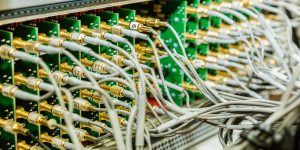
Ars Electronica AIxMusic Online Hackathon: Final Presentations
Annelies Termeer (NL) moderator + Participants
Anlässlich des ersten Online-Festivals veranstaltet Ars Electronica seinen ersten internationalen AIxMusic Hackathon im Rahmen des AIxMusic Festivals 2020.
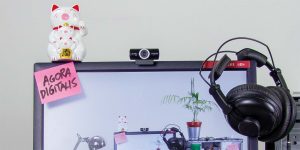
A Theory of Change
Anne Nigten (NL)
Der STARTS Prize ist ein jährlich verliehener europäischer Preis für innovative Projekte an der Schnittstelle von Wissenschaft, Technologie und ARTS. Dieser Artikel reflektiert die markantesten Ergebnisse einer Studie aus dem Frühjahr 2020, um die ersten drei Ausgaben des STARTS Prize zu evaluieren. Ziel des STARTS Prize ist die Förderung der Kunst als Katalysator für Wandel und Innovation in den Bereichen Technologie, Wissenschaft und Gesellschaft. Er hat in den letzten Jahren eine beeindruckende Zahl von KünstlerInnen, DesignerInnen und IngenieurInnen mobilisiert und eine starke Marke geschaffen.
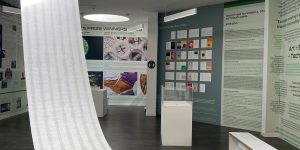
Mapping Collaborative Practice
Denise Doyle (UK), Richard Glover (UK), Martin Khechara (UK), Christian Cherene (ES), Norma Deseke (DE), Pei-Ying Lin (TW), Miranda Graaf (NL), Giulia Tomasello (IT), Tommaso Busolo (IT)
Interdisziplinäre Zusammenarbeit zwischen Kunst und Wissenschaften kann zu Spannungen und Unsicherheiten zwischen kreativen PartnerInnen mit unterschiedlichem Hintergrund führen. Wie können wir diese Momente überwinden, und sind sie integraler Bestandteil eines jeden kollaborativen oder emergenten Prozesses? Welche Rolle spielt die Zusammenarbeit von Kunst und Wissenschaft bei der Bewältigung der globalen Herausforderungen im Jahr 2020? Unter dem Vorsitz von Richter Glover und Martin Khechara nehmen TeilnehmerInnen und ForscherInnen des Forschungsprojekts STARTS Methodologies der University of Wolverhampton an diesem digitalen Ideenaustausch teil.
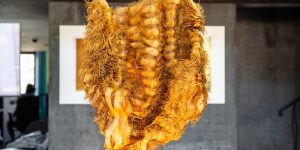
STARTS Prize Exhibition Tour
Die jährliche STARTS Prize Exhibition präsentiert eine Auswahl von aktuellen Best-Practice-Beispielen an der Schnittstelle von Wissenschaft, Technologie und Kunst. Kristina Maurer und Karla Spiluttini nehmen die Zuschauerinnen und Zuschauer mit auf eine Reise durch die diesjährigen ausgestellten Projekte in Kepler’s Garden. Von zirkulärer Ökonomie über die Beziehung zwischen Ökologie und Technologie bis hin zu digitalem Humanismus und empathischen Ansätzen der künstlichen Intelligenz zeigt die Ausstellung die herausragende Vielfalt der künstlerischen Praxis im Bereich STARTS.
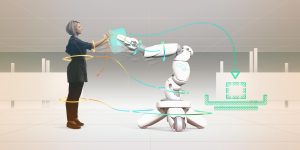
Salon Universitas
Melanie Baumgartner (AT), Florian Hartmann (AT), Christoph Guger (AT), Markus Hohenwarter (AT), Alicia Hofstätter (AT), Corinna Hörmann (AT), Martina Mara (AT), Kathrin Meyer (DE), Christopher Lindinger (AT)
Diese Session bringt vier der ausstellenden Teams - das LIT Robopsychology Lab, die JKU Linz School of Education, das LIT Soft Material Lab und das I Institute for Integrated Circuits und ihren Kooperationspartner g.tec Medical Engineering - zusammen, um ihren kreativen Prozess und die Entwicklung von Prototypen zu diskutieren.
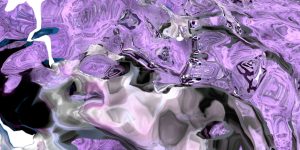
sound:frame & Pausanio virtual – Area for Virtual Art
sound:frame / Eva Fischer (AT), Marijn Bril (NL), Angie Pohl (AT)
sound:frame together with Pausanio presents the Area for Virtual Art – an online platform for digital art and virtual formats. Discover current artistic approaches in virtual exhibitions and meet people in discussion programs and live events to exchange thoughts and create new ideas and concepts. The Area for Virtual Art develops into an international hub, giving a platform to current digital art forms and connecting people all over the world.

STARTS Prize Forum: Andrea Ling
Andrea Ling (CA)
Andrea Ling, Gewinnerin des diesjährigen Grand Prize für Artistic Exploration (künstlerische Erforschung), stellt ihr Siegerprojekt Design by Decay, Decay by Design vor, eine Reihe von Artefakten, die gestalteten Verfall zeigen, entwickelt für die Ginkgo Bioworks Creative Residency 2019. Sie stellt vor, wie man eine Welt ohne Verschwendung gestalten kann und spricht über ihren künstlerischen und kreativen Prozess.
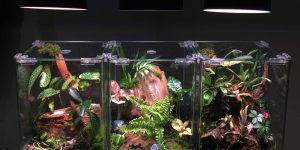
STARTS Prize Forum: Olga Kisseleva
Olga Kisseleva (RU)
Olga Kisseleva (RU), Gewinnerin des diesjährigen Grand Prize für innovative Zusammenarbeit, und Andrea Ling (CA), Gewinnerin des Grand Prize für künstlerische Erforschung, geben Einblick in ihre Praxis.
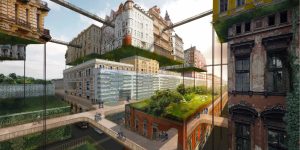
Art Thinking Forum: Humanizing Technology
Mara Balestrini (IT), Olga Kisseleva (RU), Alexander Mankowsky (DE), Hideaki Ogawa (JP/AT)
Art Thinking ist eine Diskussionsplattform zur künftigen Rolle der Kunst im Kontext von Industrie, Gesellschaft und Ökologie. Das Forum wird vom innovativen Kommunikationsdesign-Unternehmen Hakuhodo unterstützt. Zusammen mit dem Interesse der Ars Electronica an neuen Technologien und deren Auswirkungen auf die Gesellschaft ergänzt ihr zukunftsweisender kreativer Ansatz das Thema des Panels: die Zukunft der Kunst und wie innovative und kreative künstlerische Beispiele zur Humanisierung der Technologie und zur Verbesserung der Gesellschaft genutzt werden können.
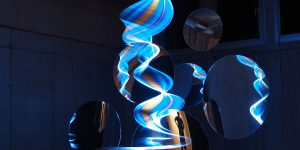
Art Thinking as Catalyst
Jurij Krpan (SI), Alejandro Martín (ES), Camille Baker (UK), Veronika Liebl (AT)
Art Thinking umschreibt die Idee, dass künstlerische Ansätze und kreatives Denken angewandt werden können, um Strategien zur Lösung realer gesellschaftlicher Herausforderungen zu entwickeln. Vier ExpertInnen auf diesem Gebiet tauschen ihre unterschiedlichen Perspektiven aus und beleuchten das Potenzial des künstlerischen Denkens, einen anderen Zugang zu Ideenfindungs- und Innovationsprozessen zu fördern.
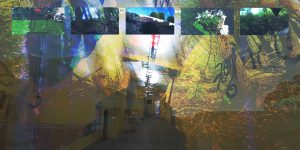
Multi-eyed creature navigating and traversing the grove
PhAMA/ FAMM department at Vilnius Academy of Arts (LT)
AE Garden Vilnius Mozilla Hub hosts directed multiangle and XR Live Experience of the Garden where around 10 live events and usual grove life are happening in numerous spaces inside and outside and dozen cameras are directed by humans, animals and plants. You can navigate through busy culture events or find your calm spot to enjoy the life of nature.
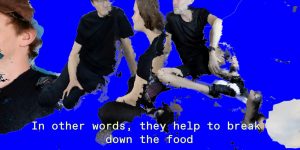
Experiencing lives
Mindaugas Gapševičius (DE/LT), Brigita Kasperaitė (DE/LT), Rūta Spelskytė (LT), Auksė Gaižauskaitė (LT)
The artist talk raises the question of collaboration between different species. It will start with a presentation of three projects: two toolkits for experimenting with living organisms and a conversation about microorganisms and their hosts. The artist talk is hosted by the Alt lab, a non-disciplinary research laboratory dedicated to artistic-scientific research and implementation of interdisciplinary projects.
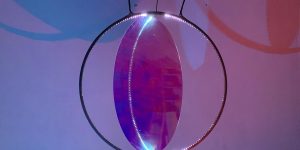
Dialogue#4 – shifting perspectives
HKU University Of The Arts Utrecht (NL)
In Dialogue#4 we talk about shifting perspectives. With several artists involved in the exhibition we discuss the aspect of “reality” and in what way art should contribute to a broader perspective on reality. Things we take for granted are maybe not what they seem, or at least there is another way of looking at them. When looking at it this way then there is no fake news as it is just another perception of reality. In a world fixed on maintaining certainty, and thus one perspective as the truth, how can artists fight against this narrow minded view on reality?

Dialogue#3 – demystifying technology
HKU University Of The Arts Utrecht (NL)
Dialogue#3 is about demystifying technology. Technology is often a black box. We have no clue what is inside the equipment we use every day. In some cases, there is even no way to open the tools we use so frequently. In what ways can we hack the technology we encounter and use every day and all day and can we give a new or different use and meaning to it? What do we learn from this process and about the way things are made and maybe should be made?

Dialogue#2 – imagining tomorrow
HKU University Of The Arts Utrecht (NL)
Dialogue#2 is called imagining tomorrow. Nobody can deny our world is in a huge transition. We live in an age of uncertainty where we are forced to rethink basically every aspect of our society from the personal to the governmental to the spiritual. We discuss with artists how they look at the responsibility of creatives when it comes to changing the world. And, is it just about exposing the problems we face or can you do more as an artist?

Dialogue#1 – data driven art
HKU University Of The Arts Utrecht (NL)
The dialogues are moderated sessions to have a more in depth look at and discussion on the underlying themes of the works at the exhibition. Dialogue#1 is about data driven art. With artists involved in the exhibition we discuss the need to make the invisible world behind technology in our society visible.
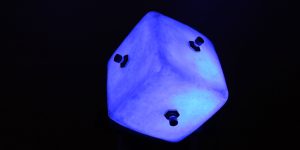
Online Exhibition NEW CONNECTIONS
HKU University Of The Arts Utrecht (NL)
The opening night will feature several live performances all related to the theme “new connections”. This for example by revisiting and passing on music traditions through electronic means, new tactile electronic instruments and an AV show performed by live coding artists.
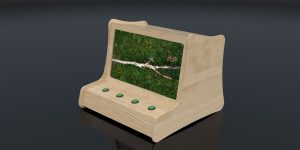
CINETic Residencies
Kıvanç Tatar (CA/TR), João Tragtenberg (BR), Saint Machine (RO), Leonard Nicola Hein & Claudia Schmitz (US/DE)
Due to COVID travel restrictions, the program for residencies that was supposed to take place at CINETic, has moved to an online collaborative program. Four artists around the world collaborated with CINETic researchers and artists. The talk with the online residents will focus on the experience of developing work for online interactions in a long-distance collaborative process.
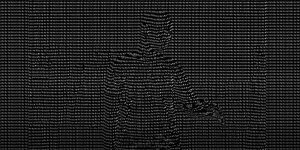
Distant Art
National University for Theatre and Film IL Caragiale Bucharest (RO)
Distant Art is an open-air exhibition of interactive installations and online works developed by digital artists and students during and after the lockdown experience. Art practice struggled to find its own path in the times of limited direct contact. Telematic presence became a must for most forms of expression, creating A Distant Art.
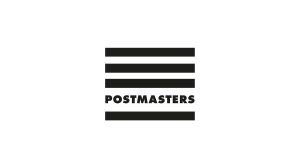
Postmasters presents Nicola Verlato, Donato Piccolo and Kristin Lucas
Paulina Bebecka - Postmasters Gallery, PostmastersROMA, Rome (IT)
In the current uncertain climate of physical disconnection, hyper digital connection and distortion of life as we know it, I wanted to express that humanity is still at the very core of our increasingly technological experience on earth. The chosen artists bring about an examination of reality and the need to cherish our humanity through various digital media, such as artificial intelligence, 3D scanning, 3D gaming software, generative 360 WebXR animation, drones, and techno.


